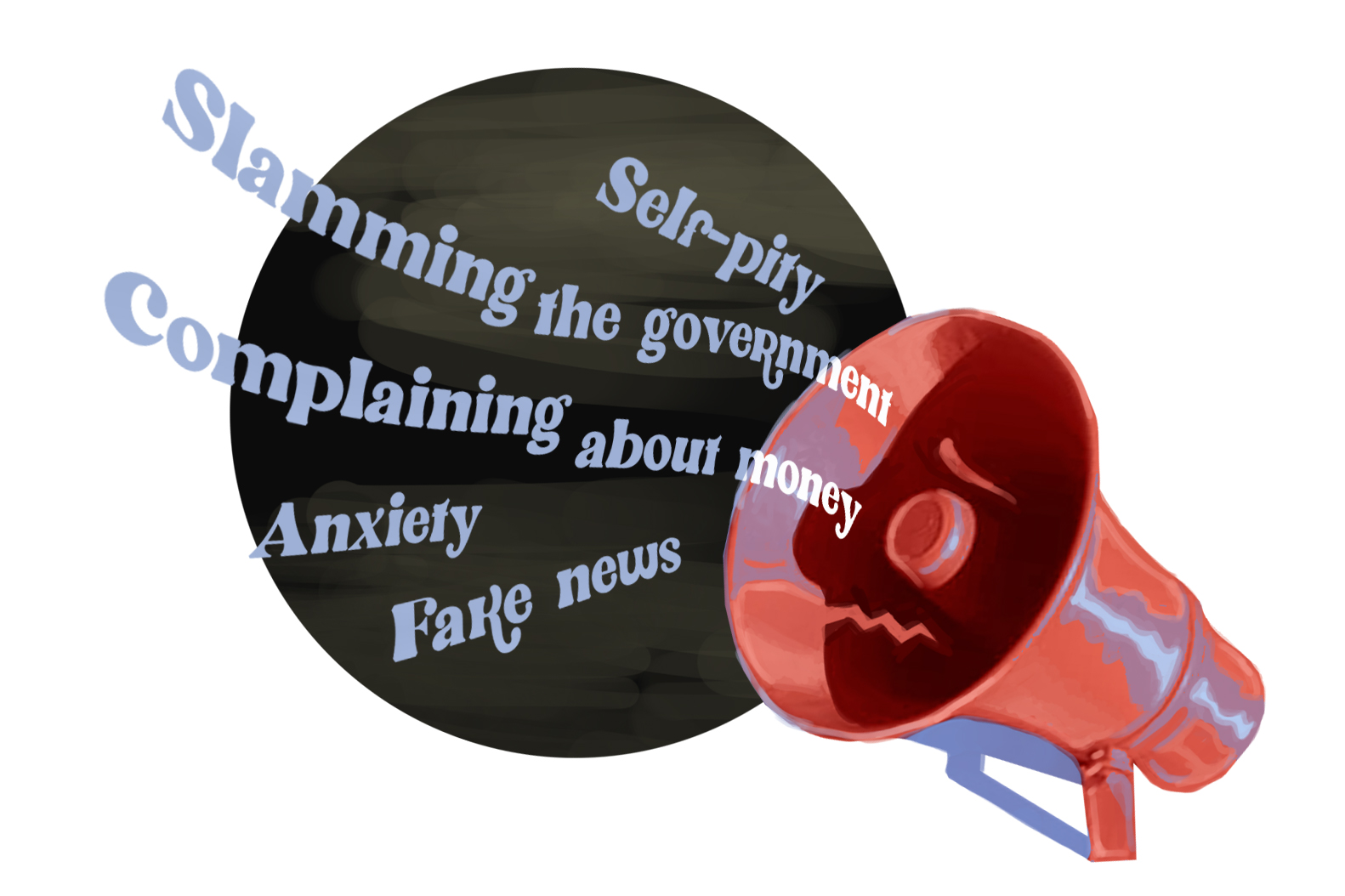I wonder if you do something like this or can relate:
- Breaking news comes in about the coronavirus, e.g. a new variant was detected at a mall you and your family had just visited a week ago.
- You rush for your phone or shout into the living room: “Hey! Oh my goodness! Did you see the news?”
- Concerned family members come stomping over in alarmed tones of: “What? What?”
- Together, you nod and agree around the ominous words on the screen that things are getting worse.
- You’re pleased, in some sort of weird satisfaction, that you were the speediest bearer of yet more bad news.
Just me? Well, I’ve certainly been guilty of it.
When I don’t catch myself, I have a tendency to catastrophise (an especially bad habit in this coronavirus era).
But over time, as I reflected on the way I’ve been communicating the news to those around me, I came to realise that I had been doing it in a way that provokes fear and anxiety — both in myself and others.
With a steady, constant influx of bad news that surrounds us these days, I don’t want to callously add to the cacophony.
I think there are better ways of communication in this age of heightened awareness and alerts, so I’d like to share three of mine with you.
1. FIND A SILVER LINING TO THE BAD NEWS
If you follow a news outlet on apps with push notifications like Telegram, then you’re likely one of the first people to know about the latest news as it happens.
But the reality is, when you forward a message like “30 new COVID-19 community cases in Singapore, of which 8 are currently unlinked” to someone, it can produce worry or anxiety if we’re not careful with the recipient and how we package the message.
So how we craft the message matters.
For instance, if you know someone in your family who’s prone to panic, you might consider processing and distilling the relevant and important information for him or her in a way that doesn’t cause anxiety.
Something like: “Hey dad, according to the numbers it looks like the situation is not improving. But we’re not gonna panic, and we’re gonna get through this together alright?” is a big difference from dropping a bombshell that thousands have died in a neighbouring country and we well might be next.
2. ENCOURAGE WITH THE GOOD NEWS
If you have to share the original message with all of its numbers, try ending off on an encouraging note.
I can’t think of a better way than by adding a Bible verse. Psalm 121:8 is a great one:

You can also round your message off with a personal note of encouragement, and a note to your friend or family member to let you know if they could use your help in this time.
This adds a personal and comforting touch to the message, so it doesn’t feel like you just dropped a bomb in someone’s lap and walked away.
As a bonus, it may even open the door to opportunities for you to share God’s love with your friends and family and bless them in practical ways.
3. STEER THE CONVERSATIONS
We’ve talked about packaging, we’ve talked about positivity — so now we’re going to look at what it means to steer the conversations we have about the coronavirus.
Chat with some people and you’ll find that conversations tend to slide in a certain set way if you just let them be.

On our part, it helps to first practise active listening. Sometimes, lashing out or feeling the need to peddle pseudo-science or fake news are really just symptomatic of a person’s anxiety from feeling that they are not in control of things.
If you can figure out what triggers a person to slide one way in a conversation, you might know what to do or say to alleviate or prevent such behaviour. For instance, you might remind a brother or sister not to let the conversation devolve into disrespect of the authorities if it’s heading down that path.
If someone is spiralling or catastrophising, remind him or her that while we exercise caution and wisdom in adhering to the guidelines and doing what we can to mitigate the effects of the coronavirus, we also cannot live paralysed in fear.
So share promises from the Word of God to comfort them. Take time out to listen to them, and assuage their fears.
Listening and choosing our words in response are so important, especially now when conversations about the coronavirus are as inevitable as conversations about the weather.
We want to manage and steer the conversations we have so they don’t become an echo chamber of agreement on how bad the situation is becoming, or cesspools of negativity.
“For the Spirit God gave us does not make us timid, but gives us power, love and self-discipline.” (2 Timothy 1:7)
There’s more than enough fear in the world, with every new headline or statistic that pops up on our screens.
We need to be sure we aren’t the ones who add to that fear, but are comforters who having been comforted by God ourselves, can comfort others in this time and show them His love and grace (2 Corinthians 1:4).
May every word and reply that leaves our lips and fingers be seasoned with grace.
- How often do you seek the Lord for comfort and wisdom when confronted with bad news?
- Have you considered the impact of your messages on the people around you?
- What role can you play in spreading the good news in this time when people are prone to panic and anxiety?









